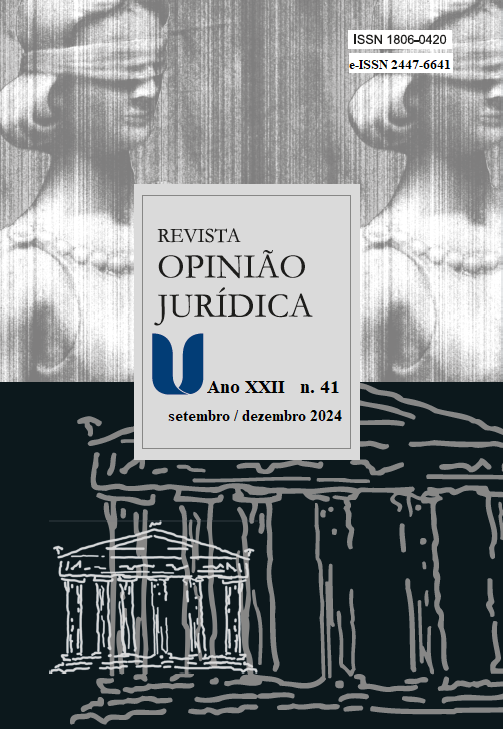Eliza Effect
implications of anthropomorphic projection on psychic integrity in the face of the use of chatbots for mental health care
DOI:
https://doi.org/10.12662/2447-6641oj.v22i41.p272-308.2024Keywords:
personality rights, Eliza Effect, mental health, chatbots, artificial intelligenceAbstract
Contextualization: In recente years, the use of chatbots, which can be define as computer programs that have the ability to hold conversations with humans, has gained relevance in the health field, especially for mental health care purposes. These intelligent systems, available for interaction at any time, can conduct exercises to control symptoms of stress, anxiety, depression and suicidal ideation. Despite such technological advances, it is essential to verify whether the implications of anthropomorphic projection, which is the human tendency of understand human characteristics of objects, in such conversations could not offend the individual’s psychological integrity, a personality right.
Objective: the study aims to analyze the implication of the Eliza Effect and anthropomorphic projection in the right to personality right to psychic integrity in the face of the use of chatbots for mental health care purposes.
Method: the research used the hypothetical-deductive method, based on a bibliographic review.
Results: There is a human tendency to anthropomorphize technological devices, reading respondes as results of human emotions, which can cause attachment, identification and dependence, given the perception of reciprocity, a scenario that can generate offense to psychic integrity.
Conclusions: There are ethical and legal implication related to conversation systems for therapeutic purposes, especially in relation to the right to psychic integrity. Issues related to the privacy of shared informatin, security and discriminatory biases are highlighted.
Downloads
Published
How to Cite
Issue
Section
License
Copyright (c) 2025 Revista Opinião Jurídica (Fortaleza)

This work is licensed under a Creative Commons Attribution-NonCommercial-ShareAlike 4.0 International License.
CESSION OF COPYRIGHTS
The submission of articles to analysis for publication on Opinião Jurídica implies the author(s) transfers copyrights to Centro Universitário Christus – UNICHRISTUS for reproduction, publicizing, distribution, printing and publication, according to the Publication Norm 414R, Opin. Jur., Fortaleza, year 12, n. 16, p.1-414, Jan./Dec. 2014, costs to be bore by UNICHRISTUS, in whatever format or means that may or shall exist, in accordance to articles 49 and following of Federal Law 9.610/98.
1. In ceding copyrights, the author(s) agrees to do so in exclusivity, free of charge and for the totality of the work.
2. UNICHRISTUS may make the work, in its entirety or in parts, available for scholarly purposes, without altering its contents, except for small corrections that are deemed necessary.
3. The cession of copyrights is valid in all countries and for versions of the material in its original language or translated into a foreign language.
RESPONSIBILITY FOR THE CONTENT
By submitting an article, the author(s) declare to have sole responsibility for the content of the piece and is(are), therefore, responsible for any judicial or extrajudicial measures referring to it.
1. In case of joint authorship, all authors are considered collectively responsible, except when proved otherwise.


















